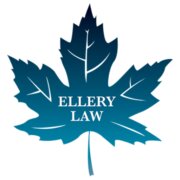Best Landlord & Tenant Lawyers in Timmins
Share your needs with us, get contacted by law firms.
Free. Takes 2 min.
Free Guide to Hiring a Real Estate Lawyer
List of the best lawyers in Timmins, Canada
About Landlord & Tenant Law in Timmins, Canada
Landlord and Tenant Law in Timmins, Canada, is governed by provincial legislation, particularly the Residential Tenancies Act, 2006 (RTA). This legislation outlines the rights and responsibilities of both landlords and tenants in the region. It includes regulations about rent, lease agreements, maintenance responsibilities, eviction procedures, and the use of rental units. The RTA aims to create a fair and balanced relationship between landlords and tenants, ensuring that both parties have clear legal guidelines to follow.
Why You May Need a Lawyer
There are several situations where having a lawyer can be beneficial in landlord and tenant matters:
- Lease Agreement Disputes: If there is a disagreement regarding the terms of a lease, a lawyer can help interpret the contract and mediate between parties.
- Eviction Cases: Whether you are a landlord seeking to evict a tenant or a tenant facing eviction, legal representation can help navigate the process correctly.
- Rent Discrepancies: Conflicts over rent increases or payment issues may require legal advice to resolve.
- Property Maintenance Issues: Failure of a landlord to maintain a property could lead to legal claims from tenants, requiring legal counsel.
- Security Deposit Disputes: Legal assistance may be needed if there is a conflict over returning security deposits.
Local Laws Overview
In Timmins, certain key aspects of the Residential Tenancies Act are particularly relevant:
- Rent Control: Rent increases are regulated, and landlords must adhere to guidelines regarding the amount and frequency of raises.
- Maintenance and Repairs: Landlords are required to maintain the property in a safe and habitable condition.
- Privacy: Tenants have a right to privacy, and landlords must provide proper notice before entering the rental unit.
- Eviction Process: Evictions must follow a legal process, which includes appropriate notice and justification.
- Security Deposits: There are regulations regarding the holding and return of security deposits, ensuring they are handled fairly.
Frequently Asked Questions
What rights do tenants have regarding the maintenance of their rental unit?
Tenants are entitled to living in a safe and well-maintained property. Landlords have an obligation to repair and maintain the unit, addressing any major issues promptly.
How much notice must a landlord give before entering a tenant's unit?
Landlords must provide at least 24 hours' written notice before entering a tenant’s unit, except in cases of emergency.
What are the rules concerning rent increases?
Landlords can only increase rent once every 12 months and must adhere to provincial guidelines regarding the percentage increase allowed.
Can a landlord evict a tenant without reason?
No, landlords need a legal reason to evict a tenant, such as non-payment of rent or breach of lease terms, and must follow a formal eviction process.
Who is responsible for pest control in a rental property?
The landlord is generally responsible for ensuring that the rental property is free from pests and must address infestations promptly.
What should a tenant do if their landlord is not making necessary repairs?
Tenants should document the issue and formally request repairs from the landlord. If unresolved, they can contact the Landlord and Tenant Board for intervention.
How is a security deposit handled in Timmins?
While security deposits per se are not allowed, landlords can collect a last month's rent deposit. This must be returned or applied towards the last month of tenancy.
Are landlords required to provide heating in the winter months?
Yes, landlords must ensure that heating is maintained appropriately throughout the winter to meet local health and safety standards.
Can a tenant sublet their rental unit in Timmins?
Tenants may sublet their unit with the landlord's consent, and the agreement must comply with any conditions stated in the original lease.
What steps should a tenant take if they receive an eviction notice?
Tenants should review the notice for legal validity and consult with a lawyer or the Landlord and Tenant Board to explore their options.
Additional Resources
For additional support and information, consider the following resources:
- Landlord and Tenant Board (LTB): This governmental body provides guidance and holds tribunals for disputes between landlords and tenants.
- Ontario Ministry of Municipal Affairs and Housing: Offers resources and information on housing policies and regulations.
- Community Legal Clinics in Timmins: Provide free legal assistance to eligible individuals dealing with tenancy issues.
- Timmins Housing Authority: May offer guidance and support for tenants in municipally-managed housing.
Next Steps
If you require legal assistance with a landlord and tenant matter in Timmins, Canada, consider taking the following steps:
- Document all relevant communications and save copies of any legal notices.
- Consult with a local legal expert or contact a community legal clinic for advice specific to your situation.
- If necessary, file an application or complaint with the Landlord and Tenant Board to initiate a formal resolution process.
- For urgent issues, seek immediate legal advice to understand your rights and obligations under the law.
Lawzana helps you find the best lawyers and law firms in Timmins through a curated and pre-screened list of qualified legal professionals. Our platform offers rankings and detailed profiles of attorneys and law firms, allowing you to compare based on practice areas, including Landlord & Tenant, experience, and client feedback.
Each profile includes a description of the firm's areas of practice, client reviews, team members and partners, year of establishment, spoken languages, office locations, contact information, social media presence, and any published articles or resources. Most firms on our platform speak English and are experienced in both local and international legal matters.
Get a quote from top-rated law firms in Timmins, Canada — quickly, securely, and without unnecessary hassle.
Disclaimer:
The information provided on this page is for general informational purposes only and does not constitute legal advice. While we strive to ensure the accuracy and relevance of the content, legal information may change over time, and interpretations of the law can vary. You should always consult with a qualified legal professional for advice specific to your situation.
We disclaim all liability for actions taken or not taken based on the content of this page. If you believe any information is incorrect or outdated, please contact us, and we will review and update it where appropriate.










